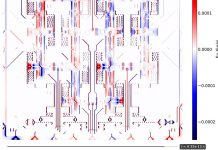Axel Springer, which publishes Germany’s largest daily newspaper, Bild, has announced plans to implement AI job cuts in its regional operations as it prepares for a digital-only future
Is it time to embrace artificial intelligence in journalism?
The German newspaper known as Bild intends to reduce its regional editions from 18 to 12 and close two-thirds of its regional offices.
These changes will consolidate the newspaper’s operations in Berlin, as reported in an email sent to employees on Tuesday.
AI job cuts amid transition to digital-only future
Axel Springer’s memo to employees revealed that several roles involved in print production, such as editors, photo editors, proofreaders, and others, will no longer exist in their current form.
While the exact number of job cuts was not confirmed by the company, it is estimated that around 200 positions will be affected.
These job losses are part of Axel Springer’s broader strategy to become a purely digital publisher, announced by CEO Mathias Döpfner three months ago. The move reflects the company’s shift towards a digital-focused approach.
AI’s role in supporting journalists
While a spokesperson for Bild claimed that the job losses are unrelated to the use of AI and emphasised that the technology will support journalists in their work, Axel Springer’s internal memo tells a different story.
The company outlined its plans to launch an aggressive AI offensive to facilitate the transition to digital-only.
According to the memo, AI will play a crucial role in streamlining operations, including potentially automating the layout of the printed newspaper.
This development highlights the evolving nature of journalism and the increasing integration of AI technology in news production processes.

Potential automation of print newspaper layout
Axel Springer acknowledges that AI has the capability to fully take over the layout of the printed newspaper.
AI has the capability to fully take over the layout of the printed newspaper.
As the company moves towards a digital-only future, the majority of roles involved in print production are considered vulnerable to being replaced by AI or rendered redundant in the digital landscape.
This recognition underscores the ongoing technological advancements reshaping the publishing industry and the need for organisations to adapt and embrace AI solutions to stay competitive in the evolving media landscape.











